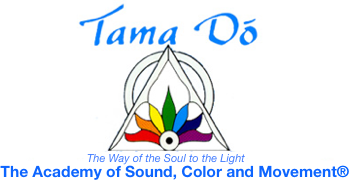
Doctor of Oriental Medicine, Licensed Acupuncturist
7764 Jade Ct.
Boulder, CO 80303
www.DrJakeFratkin.com
(303) 554-0722
FAX (303) 554-0299
e-mail: jake@drjakefratkin.com
July 8, 2004
To Whom it May Concern:
I am writing this letter in support of Fabien Maman, who is pursuing a grant to support his efforts into research and practical applications into energetic healing.
I have known Fabien Maman for over five years due to his frequent visits in my home town of Boulder, Colorado. Because we are both experienced in Oriental medicine, and actually follow a similar lineage that traces itself back to the same school of thought from Japan, I feel I can comment on M. Maman’s work.
M. Maman, originally a jazz musician, was attracted to the Oriental martial art of Aikido, and was able to study with Sensei Nakazano in Paris, France many years ago. While studying with this famous Japanese master, he also undertook study of Nakazano’s system of acupuncture, based on the classical Nan Jing style. Combining his love for music with the classical approach to acupuncture channels and the art of meridian balance, M. Maman developed a method of treating acupuncture channel imbalances with various tuning forks and overhead chimes.
This original approach has been taught for many years through his 4 volumes of books as well as his teaching seminars, and has become the inspiration for many other teachers exploring the use of sound on healing.
Applying sound therapy to acupuncture theory is a perfect match. Classical acupuncture texts such as the Nei Jing (oldest existent copy from 173 BC) and the Nan Jing (180 AD) describe in detail the relationship of acupuncture channels and points to regulating the health of the human body. Subsequent clinical practice (as well as modern research) has verified the fundamental truths of this marvelous system. It is probable that ancient Chinese were aware of the effects of musical notes on the acupuncture network, although this material does not survive in a clinically applicable method.
Fabien Maman has truly done something unique and possibly beneficial to modern society in a way as yet unknown: he has created a system of clinical application of music and musical notes to affect the health and well-being of the human body, mind and spirit.
His academy, Tama-Do, which means Way of the Soul, offers more than 30 techniques using sound, color and movement to harmonize energy fields, all based on solid research in clinical and teaching environments.
As an acupuncturist, I find his tuning fork techniques inspired, yet practical and efficient.
Fabien’s own form of Qi Gong, the Tao Yin Fa (movement for health), which works on 5 levels of consciousness, (physical, psycho/spiritual, cosmic) is a powerful addition to the world of Chi movement.
Influenced by his trips to China, Fabien has created an alternative to the western approach of Jungian analysis and Gestalt psychotherapy: a form of Qi Gong which uses Chi to burn negative emotion from the energy field, which, in turn, heals the body.
Fabien’s sound instruments, the Pyramid, the Arche and the Bagwa, are indescribable. These are not tiny tuning forks – but huge cathedrals of sound – more than 13’ high. They are certainly on the cutting edge of sound systems designed today to clear energy fields with music.
He is now experimenting with seasonal harmonizing concerts that can impact groups of people rather than individuals in a single session.
I am also a jazz musician, and have had the privilege to play in one of Fabien’s concerts in New York, at the New York Open Center. The concept is simple; the results, profound.
By taking the key of the element of each season, as briefly mentioned in the Nei Jing, which correspond with an organ, and transposing Indian modes to match the key, Fabien creates an evening of music, to bring body, mind and spirit into harmony with nature and the cosmos. He adds ‘dancers’ using color scarves, to transmit Chi into the audience with simple Qi Gong moves from his Tao Yin Fa.
This ‘music as medicine’ is certainly advanced, yet follows the direction science is probably leading us to in the next century. Fabien’s concerts find an echo in the latest discoveries of astrophysicists and cosmologists, who are beginning to suggest that the Universe vibrates like music, and that every particle has a note. To cultivate peace throughout the world, we must find the perfect symphony, which keeps us harmonically in tune.
I heartily encourage you to consider his application for a grant so that the world can have access to his unique and marvelously original contribution.
Sincerely,
Jake Paul Fratkin, OMD
via email
Jake Paul Fratkin, OMD
Clinical practice since 1978
Diplomate in Acupuncture (NCCAOM); 1986 and in Chinese Herbal Medicine (NCCAOM); 1994
Doctor of Oriental Medicine, 1988, Southwest Acupuncture College, 1988.
Fellow, National Academy of Acupuncture and Oriental Medicine, 1992
Member, National Association of Teachers of Acupuncture & Oriental Medicine, since 1995
Former Chairman, Department of Oriental Medicine, Bastyr College, 1984-1986.
Former Chairman, Department of Herbal Medicine, Southwest Acupuncture College, 1986-1990.
Task Force Chairman, Continuing Education Department, National Council for the Certification of Acupuncture an Oriental Medicine (NCCAOM)
Author, “Chinese Herbal Patent Medicines, the Clinical Desk Reference”, Shya Publications, 2001.
“Acupuncturist of the Year”, American Association of Oriental Medicine, 1999.
Former Faculty:
Colorado School of TCM, Denver
Southwest Acupuncture College, Santa Fe, NM
Bastyr College, Seattle
Oregon College of Oriental Medicine, Portland
Midwest Center of Oriental Medicine, Chicago